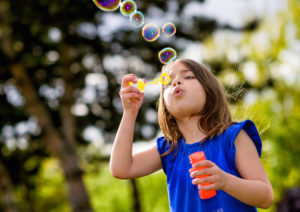Three Important Factors to Consider When Gaining an Understanding of a Child’s Self-Regulation Capabilities:
Practical Strategies:
- Children do as we do, not as we say. It’s very important to model our own self-regulation strategies (taking a break, deep breaths, verbalizing our feelings by labelling our emotions.)
- Provide structure and predictability. Children who are experiencing self-regulation difficulties, feel out of control a lot of the time and therefore feel calmer when they know the upcoming schedule. Give them a preview of what is to come and what they might expect. Build a feeling of stability in the home and create consistent routines. Weekly or Bi-monthly Family Meetings are very important for creating structure and predictability.
- Use appropriate touch as much as possible. Hold hands, give back rubs, rub hand lotion on hands, write “I Love You” on their backs, play-wrestle, give piggy back rides and stand-on-my-feet-while-I-walk rides. Rock them, cuddle them, hug them. Touch is one of the most powerful ways we can connect and the more connected a child feels, the more secure, calm and self-regulated he/she feels. Caution: If a child turns away because there’s too much stimulation, such as can happen in play-wrestling, read the cues and move into a calmer form of touch. Despite the fact that children laugh when they are being tickled, it is unusual to find a child who enjoys being tickled, but they do like to connect in a joyful way.
- Be the Captain of the Ship – Kind and Firm. Children need to know that we can take care of them especially when they are dysregulated. They need to know that we will not abandon them as they experience tantrums etc. They need to know that we are in charge and we know how to take care of them. They will not feel secure if they hear us say “I don’t know what to do with you” or “I give up”.
- Build an emotional vocabulary. Use stories in books as a way to discuss how various characters might have felt. Model the expression of feelings, talk about your feelings (I was so frustrated today when… You seem really excited about…).
- Validate your child’s emotional state and accept their emotions. Label your child’s emotions. (You seem really mad about…) If your child is too upset to hear any emotional vocabulary, label the fact that he/she is having a really hard time. (You’re having a really hard time right now…) Try to help your child move from anger to one of the many hidden emotions under the anger (fear, worry, helplessness, hurt, sadness etc.). Read more on emotion coaching by John Gottman.
- Thoughts create feelings and feelings create actions – teach children to use positive self-talk. Anxiety is based in fear and the opposite of fear is trust or love. Teach children to think in more positive ways and to de-personalize situations. Eg. Everyone makes mistakes sometimes, I have other friends who like me, She’s just in a bad mood – she’ll be nicer late
- Reflect – once everyone has calmed down, (the defenses need to be completely down), chat about the earlier situation and discuss how it could be handled differently if something similar was to arise again. Use the sandwich technique – first say something positive that was done well, then discuss the part that could have been handled in a more constructive manner and then finish on a positive, yet genuine note of appreciation.
- Exercise – for many, exercise is a great way to up-regulate and down-regulate. Build family exercise into your self-regulation program.
- Teach your child to identify his/her different levels of emotion. My favourite program for this is The Zones of Regulation. Using the colours of blue (for under-regulated – sick, hurt, bored, tired etc.) green (for calm, focussed, relaxed and happy) yellow (for agitated, frustrated, worried, silly, excited etc.) and red (for out of control anger, fear, anxiety etc.)
- Create strategies with your child as to what he/she can do to get back to the “green zone” (when in one of the other colour zones). The Zones of Regulation has some good ideas for this such as reading a book, walking a dog, asking for a hug, having some quiet time, going on a swing, taking deep breaths, blowing bubbles etc.
- These are life-long skills that will develop your child’s EQ – Emotional Intelligence.
Want to Connect?
Subscribe now to receive free weekly parenting tips and inspiration.








